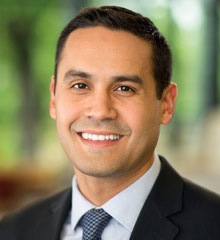
Teaching is Like…
 On the eve of my doctoral comprehensive exams, I felt like the smartest person in the world. I had drunk deeply from the well of New Testament scholarship over several months. From Origen to Bultmann, I had read and digested texts, ancient and modern. My stack of notes and outlines helped structure so much data. And then of course the urgency of the moment, the high stakes of a handful of exams that culminated years of study were pressing on me. Few things can clarify the mind as much as the pressure to succeed. But I was also driven by the quest for scholarly understanding. There is a deep vocational satisfaction in knowing well one’s field of study.
On the eve of my doctoral comprehensive exams, I felt like the smartest person in the world. I had drunk deeply from the well of New Testament scholarship over several months. From Origen to Bultmann, I had read and digested texts, ancient and modern. My stack of notes and outlines helped structure so much data. And then of course the urgency of the moment, the high stakes of a handful of exams that culminated years of study were pressing on me. Few things can clarify the mind as much as the pressure to succeed. But I was also driven by the quest for scholarly understanding. There is a deep vocational satisfaction in knowing well one’s field of study.
And so on that day, my brain felt huge. My mind was fully stocked with expertise.
Of course, that didn’t last long.
When the exams were finally done, I steadily declined from that mountaintop of intellectual exertion. My brain had reached a point of saturation. Enough was enough and learning something new meant losing something on the periphery of my knowledge.
Comprehensive exams of this kind are thankfully not the norm of instruction. Very rarely, do we ask students to master a whole field of study.
And yet I wonder if the underlying metaphors of our teaching suggest otherwise.
I have been struck in recent months by a metaphor that Clark Quinn draws upon in The Mobile Academy: mLearning for Higher Education. He suggests that our implicit—if not explicit—metaphors of learning lean towards a fire hose of information. We feel so pressed by the amount of time and contact we have with our students, that we feel the compunction to teach them as much stuff as we possibly can in that limited time. And so we try to douse them with all the information they might need.
 Or another way to extend this metaphor is to remember what it was like to drink water on a hot summer day from a hose when you were a child. You could drink water certainly but much of the water would fall on the ground. Or if you leave a hose running at full blast at one spot in a yard, the water cannot soak into the ground. Instead, the ground will be quickly saturated, the water merely standing on the surface of the ground.
Or another way to extend this metaphor is to remember what it was like to drink water on a hot summer day from a hose when you were a child. You could drink water certainly but much of the water would fall on the ground. Or if you leave a hose running at full blast at one spot in a yard, the water cannot soak into the ground. Instead, the ground will be quickly saturated, the water merely standing on the surface of the ground.
But what if our metaphors for education were still a form of irrigation but more effective, more precise approaches. What if our learning was more like drip irrigation rather than the relentlessness of a hose watering a plant whether the ground can absorb the water or not? That is, what if we saw education like a slow trickle of water aimed right at the roots? What if we saw education as irrigation that pays attention to context? Has it rained? Is it unusually warm? What if we saw education as irrigation that waters at the best spot and time and place possible?
These questions have been on my mind recently as a colleague and I have been co-teaching a new, year-long course called “Scripture and Its Witnesses.” How exactly do we teach the breadth of the biblical witness from Genesis to Revelation without neglecting Nahum and Titus along the way? I will reflect on these teaching challenges in an upcoming post.
For now, let me conclude with this.
I have wondered whether too much of our teaching settles for scarcity. There is not enough time to teach and read and learn, not enough classes, not enough training. However, it may be that meeting students in the fullness of their contexts, knowledge, experiences, and skills might help our students become agile learners in a rapidly changing world. Instead of trying to teach nearly everything they will ever need to know, it may be enough to teach them how to develop deep roots where they are but also how to find new ground in which to grow and flourish.